
WE know that the lives of people in Britain have changed immeasurably over the past 140 years. Has it also been the same for horses? The greatest difference must be that there are far fewer of them. It is estimated that there were more than three million horses in the UK in late Victorian times; now it is understood that there are well under a million. Much of that reduction is because we now keep horses purely for leisure and sport, whereas in 1900 at least one million of those were working animals, employed on farms, in public transport, in coal mines and to deliver goods.
Horses were essential for personal transport, either ridden or in harness. They were part of daily life for almost everyone, whether they lived in the countryside or in the towns and cities. Although the lives of working horses were often brutally hard, as anyone who has read Black Beauty – published in 1877 – will know, horses in general were well looked-after and greatly valued.
“People had a working knowledge of the working horse,” says trainer Sir Mark Prescott. “Joshua East made a fortune from Hackney cabs – in the end he had a monopoly – and he said to all the operators, ‘I will provide your horses, but you must rest each horse for three months a year, and if a horse goes lame, I will give you another one.’”
The two World Wars changed everything. According to equine welfare charity Brooke, the last London bus drawn by horses ran on 4 August 1914 – the day Britain declared war on Germany. While the British Army had around 25,000 horses in 1914, that number would swell; by 1917, the Army employed more than 368,000 horses on the Western Front alone.
この記事は Horse & Hound の June 06, 2024 版に掲載されています。
7 日間の Magzter GOLD 無料トライアルを開始して、何千もの厳選されたプレミアム ストーリー、9,000 以上の雑誌や新聞にアクセスしてください。
すでに購読者です ? サインイン
この記事は Horse & Hound の June 06, 2024 版に掲載されています。
7 日間の Magzter GOLD 無料トライアルを開始して、何千もの厳選されたプレミアム ストーリー、9,000 以上の雑誌や新聞にアクセスしてください。
すでに購読者です? サインイン
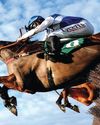
Gemirande provides 24-carat magic
Venetia Williams sparkles again in the December Gold Cup and jockey brothers dead-heat
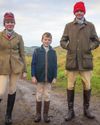
‘Happy hunting, everyone'
“The season for talks, dinners and parties has finally arrived for Tessa Waugh, whose distress about the snags of middle age fades away with some rousing festive spirits
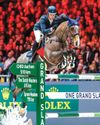
'Monaco deserved this victory
Seemingly destined always to play the bridesmaid’s role, Harrie Smolders’ great partner Monaco finally tops an incidentpacked Rolex grand prix

'It had to end sometime'
The closure of beloved Hampshire saddlery Calcutt Sons is a loss to the hunting and wider equestrian worlds, as Octavia Pollock reports
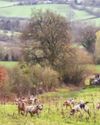
'You couldn't want for more
The Ludlow's peaceful country makes for a day in \"hunting paradise\"
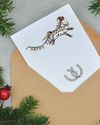
The greatest gift of all
Christmas is fast approaching and while we all like a bit of tinsel, the festive season is also a perfect time for giving to a horse charity. Niki Hinman finds out some of the options

Winter him well
A horse's winter routine can differ dramatically from his summer structure but what’s the knock-on effect? Ellie Hughes asks vets how to optimise routine management for the season
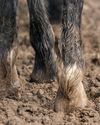
Neat feet
Excellent hoof care is a year-round concern but the winter months present their own problems. Richard Stephenson MRCVS explains the seasonal challenges afoot and how to stay one step ahead
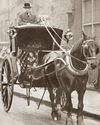
In bygone days
Modern vets have much scientific knowledge behind them, but what about their forebears? Kieran O’Brien MRCVS opens up the world of Victorian vets in London
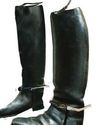
'When I joined the Pony Club it was just two boys and 48 girls'
Pepsi Kohler on being delightfully outnumbered by girls in the Pony Club, a leg-up from a royal and the H&H advert that changed his life